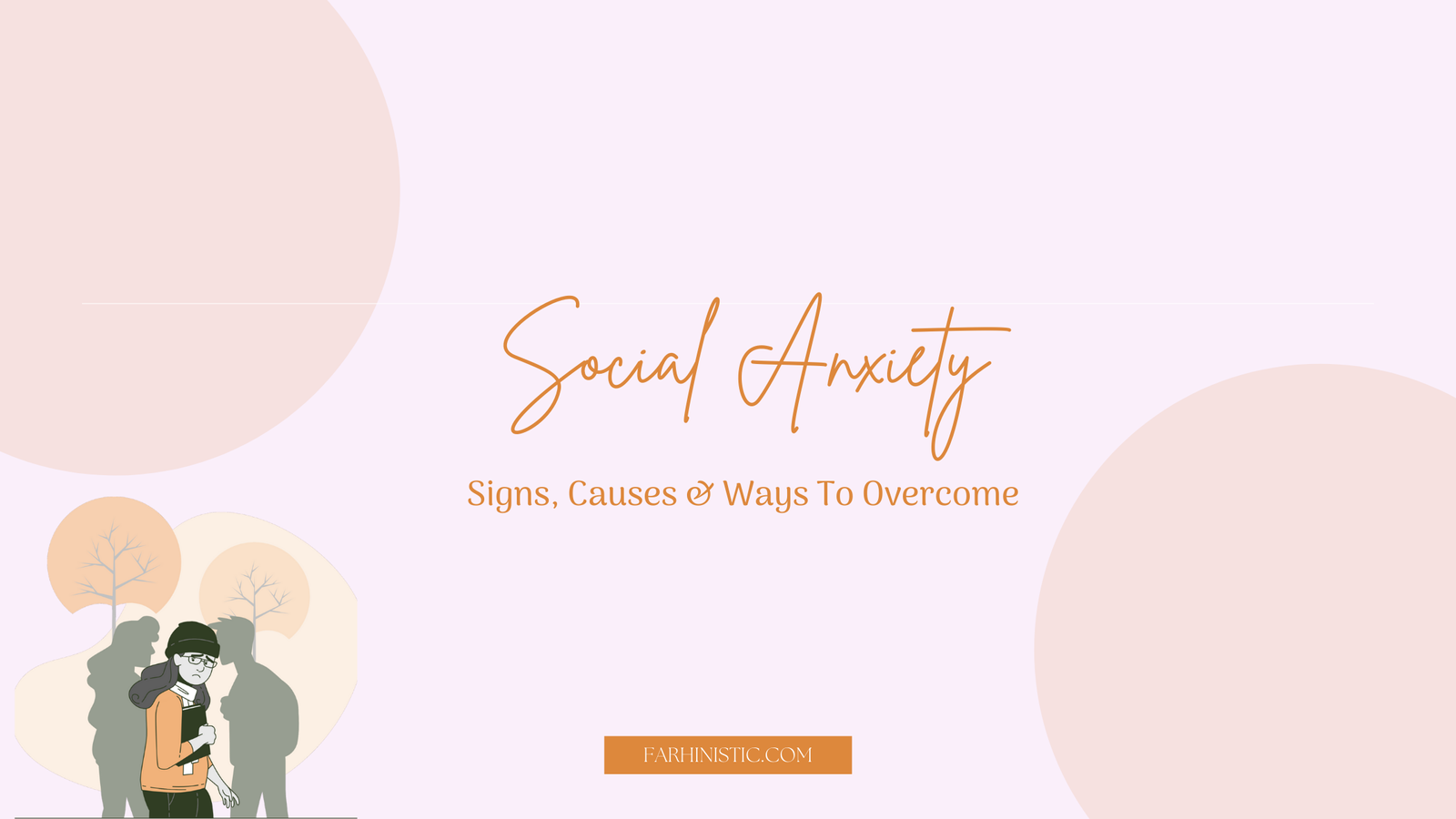
Social Anxiety : Signs, Causes & Ways To Overcome
Are you extremely afraid of being judged by others? Are you very self-conscious in everyday social situations? Do you avoid meeting new people? If you have been feeling this way for at least six months and these feelings make it hard for you to do everyday tasks—such as talking to people at work or school—you may have a social anxiety disorder.
Social anxiety is also known as Social phobia. It is more than shyness. In this disorder, fear and anxiety lead to avoidance that can disturb your life. Severe stress can affect your relationships, daily routines, work, school or other activities.
Signs and symptoms of social anxiety disorder :
Emotional :
- Fear of situations in which you may be judged negatively
- Worry about embarrassing or humiliating yourself
- Intense fear of interacting or talking with strangers
- Intense fear or anxiety during social situations
- Fear that others will notice that you look anxious
Physical :
- Sweating
- Dizziness
- Shaky voice
- Blushing
Avoidance :
- Avoidance of situations where you might be the center of attention
- Avoidance of activities that involve interacting with others
- Cancelling outings
Causes of Social Anxiety
- Excessive social isolation, including studying alone in academic environments
- Traumatic bullying
- Emotional, physical abuse
- Worst experiences
- A childhood with parents or guardians who are overprotective, controlling, restrictive or anxious
- Experience with mental illness

How to overcome social anxiety ?
Treatment for social anxiety is remarkably effective, and simple. Here are some ways to help overcome social anxiety
Be yourself
Starting off by being who you really are is going to make it so that everyone who hangs around you already likes you for your true self.
Join a support group for social anxiety
Social groups catered to people with similar issues or backgrounds can make them feel like they belong somewhere, and that people do understand what they’re going through.
Practice deep breathing
Meditation and deep breathing exercises teach them to bring their attention back to the present moment, and think of nothing else but their own breath.
Practice makes perfect
When you try to become better at socializing and gaining confidence, you need to make sure that you go out and practice as much as you can.
Don’t give up
Even if something goes wrong, like you say something embarrassing or you make a mistake in socializing, don’t give up. Sure, it’s a little uncomfortable, but in the end, no one is going to remember that one embarrassing thing you said a few months ago.
Practice journals
We know how important journaling is for us. Write down how you behave in certain social situations.Try to understand more about your anxiety.
Take therapies
Therapy can help a person to understand what triggers their anxiety. It can also help with making positive lifestyle changes and working through trauma.
Don’t forget to love yourself. Happy reading ! 🙂



